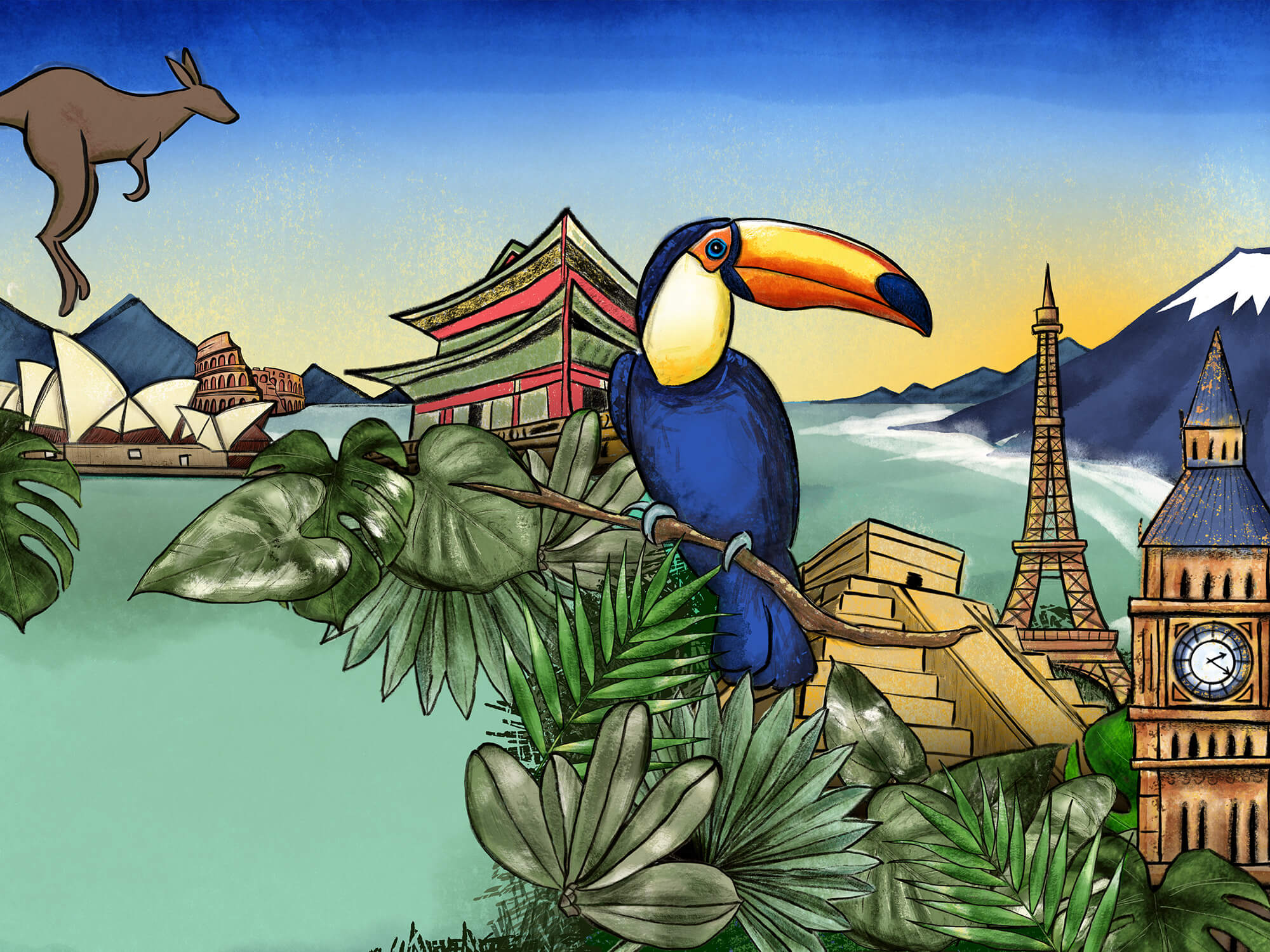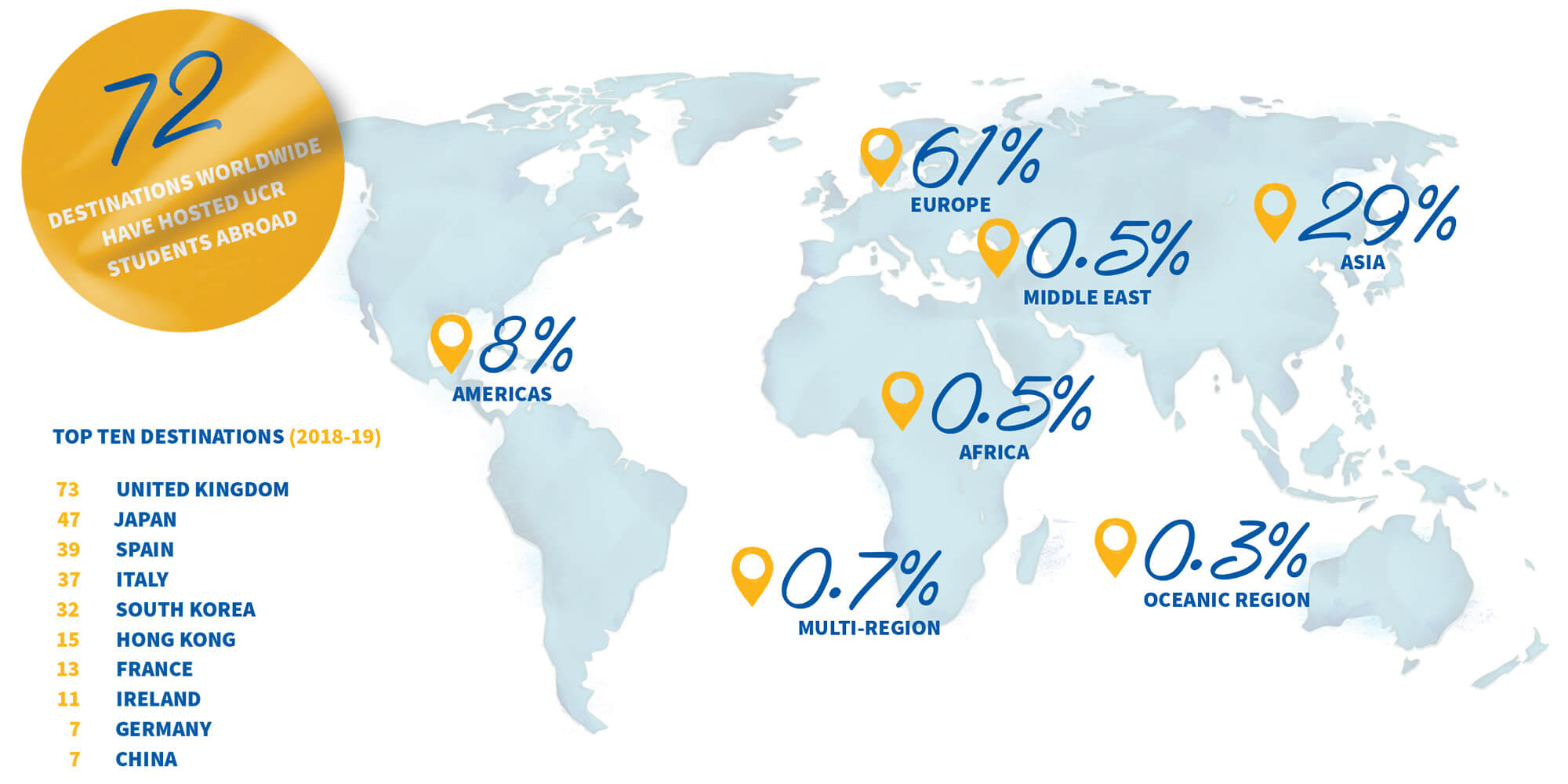A WORLD OF OPPORTUNITIES
For 60 years, UCR’s Education Abroad programs have provided students with unforgettable experiences and learning opportunities around the globe
By Jessica Weber
uring a study abroad trip in Budapest, Hungary, in fall 1990, UCR alumna Celena Turney ’91, was tasked with fulfilling a unique request on behalf of then-UCR chancellor Rosemary Schraer. While on a group excursion in Prague — and serving as a goodwill ambassador for UCR — Turney was to meet with author, former dissident, and last president of Czechoslovakia Václav Havel and invite him to be the commencement speaker at UCR’s upcoming graduation ceremony. Though Havel declined the invitation, Turney was nonetheless welcomed into Prague Castle to speak with the president.
“The conversation was captivating, with powerful stories of political action, tremendous personal risk, and unshakable integrity,” Turney said. “The gift I brought from UCR was presented to the president. In return, he signed my dog-eared copy of his seminal essay, ‘The Power of the Powerless.’ I still have it.”
Turney’s is just one of the many formative experiences UCR students have gained from studying abroad. Celebrating its 60th anniversary this year, UCR’s Education Abroad programs have grown from recruiting the campus’ first seven students to study abroad in France in 1962 to sending over 8,000 students to 72 destinations around the world.
Today, students can choose among three program types. The UC Education Abroad Program, or UCEAP, serves as the University of California’s official education abroad program provider; The Opportunities Abroad Program, or OAP, includes any learning abroad experience offered by other UC campuses and non-UC education abroad programs; and The Faculty Led Education Abroad Program, or FLEAP, offers students the unique opportunity to take UCR courses from UCR professors in an international setting over the summer.
“FLEAPs have an enrollment cap around 20 students, so students really get to know one another and the instructor and have time to talk about career plans and future goals,” said Rob McKee, interim campus faculty director of Education Abroad. “Having the experience of living in and amongst people of a foreign culture forces students to learn how to adapt more quickly. It reinforces critical thinking skills and focus just by nature of being in a new environment.”
Participating in education abroad also provides students opportunities to improve language acquisition skills, take courses not offered at home, and acquire international internship, research, or volunteer experiences that can make them more competitive in an increasingly global workforce. LaSharon McLean Perez ’04, MFA ’10, assistant director of Education Abroad and a former UCR student, knows firsthand the impact studying abroad can have on students academically, professionally, and personally.
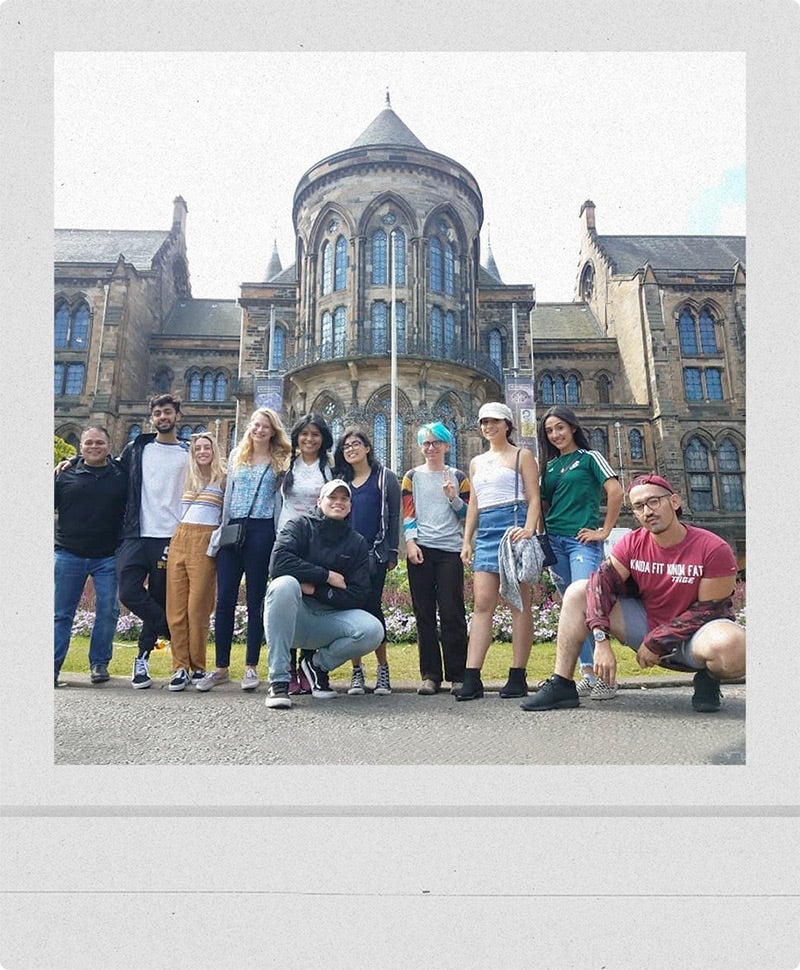
“As a UCR alumna, I have had the privilege of studying abroad and can attest to it being a life-changing experience,” she said. “As my experience expanded my global network, providing me with new insights on the world around me, it also provided me with skills that led me to where I am today. An international experience can impact a student’s life significantly and take them on a path that they choose or an unexpected path of new opportunities.”
But for many UCR students, opportunities such as these have been out of reach. Serving a diverse student population, UCR enrolls more students who receive Pell Grants than nearly every university in the country and more than half of UCR’s students are first generation. As such, many UCR students are hindered by significant financial hurdles that make studying abroad inaccessible. Only 2% of UCR students participate in education abroad programs each year — far below the national average of 11%
“UCR serves many students from low-income families and education abroad comes with expenses that are quite often prohibitive for our students,” said Jun Wang, MBA ’07, assistant provost for strategic initiatives and international recruitment and a UCR alumnus. “Providing stipends to our students is the best way to increase participation.”
Recognizing this need, UCR trustees Byron and Teri Pollitt recently made a $2 million endowed gift to the university. The “Teresa and Byron Pollitt Endowment for Study Abroad Fund” will provide scholarships for students who are interested in pursuing international education experiences.
“The Pollitt family understands how learning abroad is a transformative experience,” said Marko Princevac, vice provost of international affairs. “We want all our students to know that international education is an option for them. With support from such generous donors, we can increase access to education abroad through scholarships and ongoing programmatic support. We are very grateful to the Pollitt family and are looking forward to following the careers and lives of many Pollitt Fellows to come.”
Financial aid and other scholarships are also available to students looking to study abroad. Macy Ring ’05, assistant director of Education Abroad who also studied abroad as a UCR undergraduate, encourages interested students to connect with the Education Abroad office early in their college career to discuss their academic plans, research opportunities, and make sure they apply by the campus deadlines.
“Many UCR students are not aware they can learn abroad, and it’s often the first thing alumni regret not doing,” she said. “There is a program for every student.”
UCR Education Abroad at a Glance
*Total includes 2022-23 prospective participants
Memories from Abroad
Many UCR alumni agree that partaking in education abroad was one of the best decisions of their college careers. Read how these opportunities helped shape the futures of program participants.
*Submissions have been edited for length and clarity.
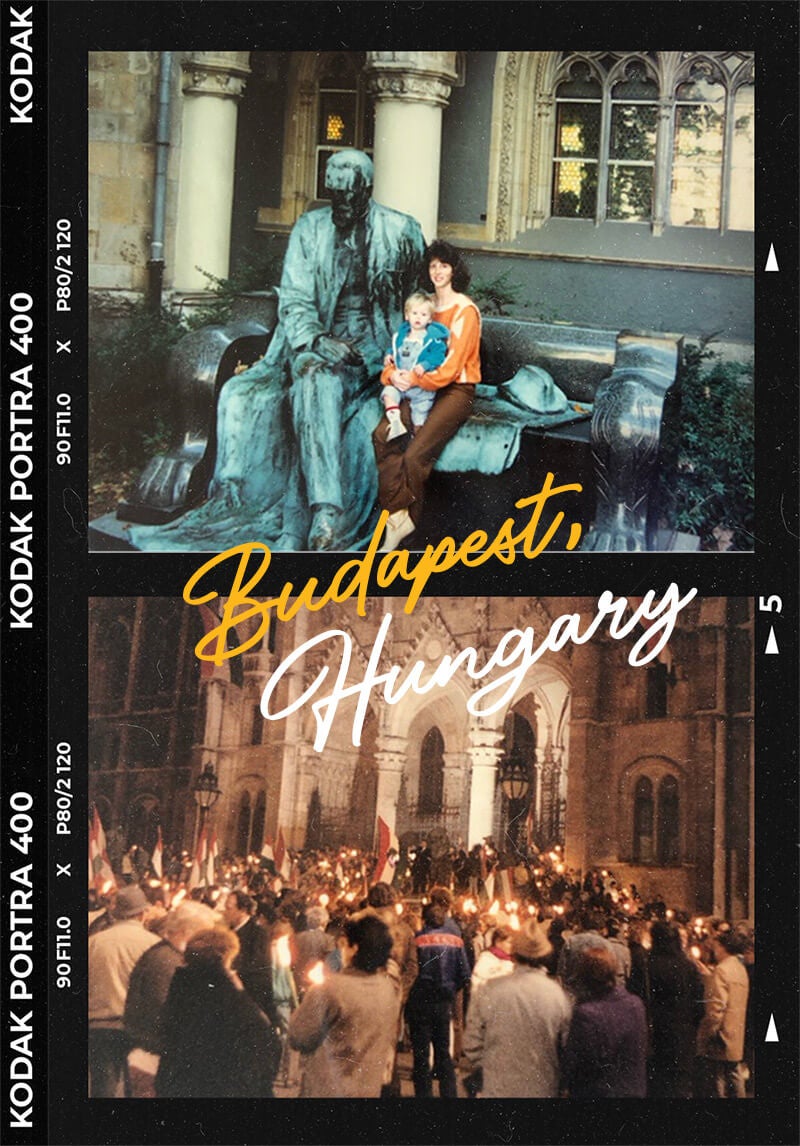
Celena Turney ’91, political science
UCEAP: Budapest, Hungary | fall 1990
I studied at the Karl Marx University of Economics a year after the Berlin Wall came down. I was a most unusual student because my husband and toddler accompanied me. My course of study focused on the social, political, and economic history of central Europe in the 20th century. It was a perfect learning lab! People were asking themselves what it meant to be a citizen in a democracy and what the responsibilities of their new government should be to its citizens. In the months previous, I was named UCR’s Goodwill Ambassador to the Czech Republic by Chancellor Schraer. I arranged to visit the castle and invite Václav Havel to be UCR’s commencement speaker, since his philosophical writings and political activism had inspired so many across the globe. My experiences in central Europe were amazing — from meeting fabulous college students to exploring medieval castles, walking in a parade, seeing a concert celebrating freedom in Prague’s Grand Platz, visiting the ruins of a castle where an infamous female “vampire” once lived, and taking in Hungary’s thermal waters. My advice to students wishing to study abroad — say yes! Travel. Explore. Meet people. Try new foods. Get out of your comfort zone.
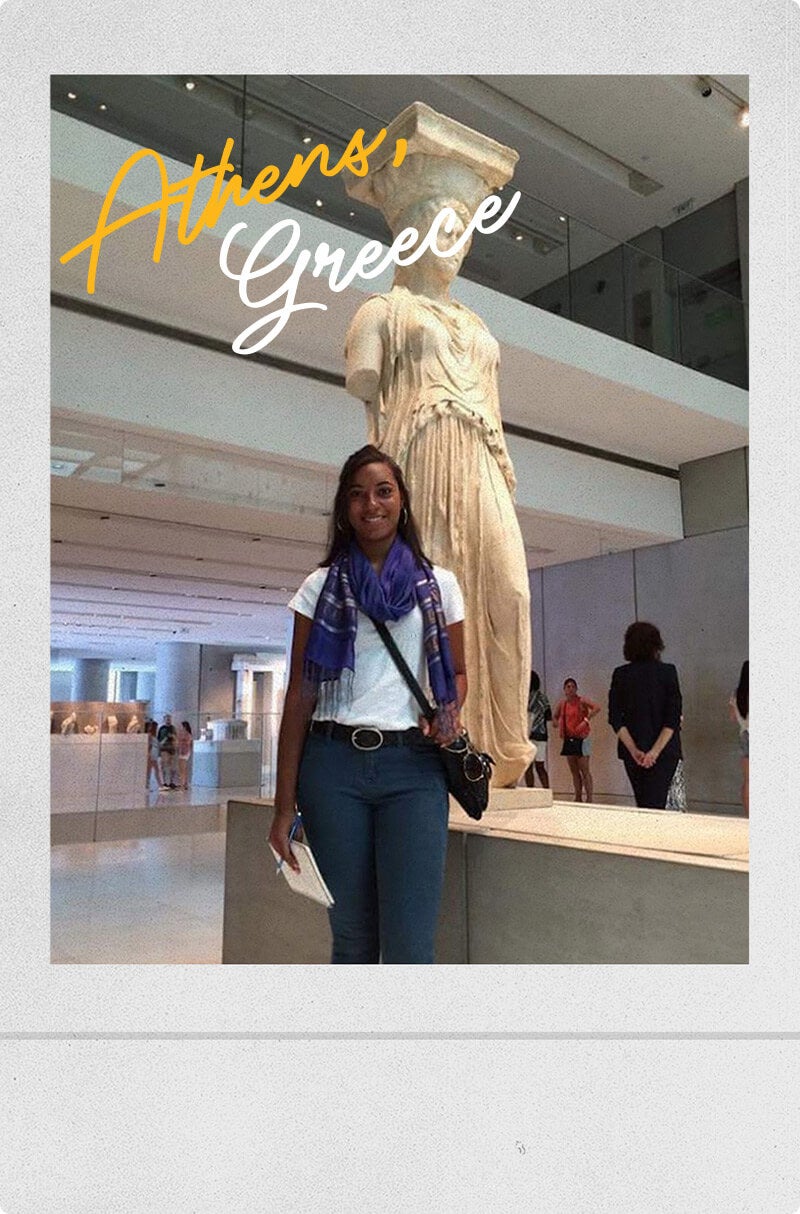
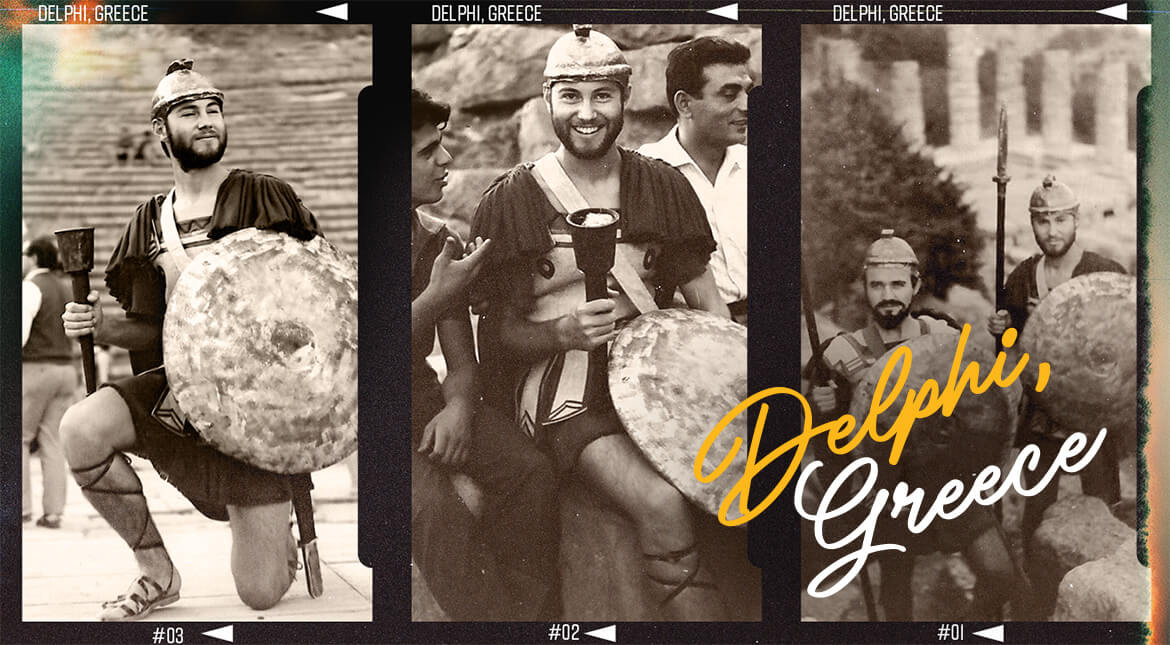
Richard Parke ’66, classical languages
UCEAP: Delphi, Greece | spring/summer 1966
Shortly after the New Year in 1966, I learned about a new UC study center in Delphi in central Greece. My classical languages professor, Dr. Anastasius Bandy, suggested I consider this opportunity to close out my time at UCR. It would be for me a “crown jewel,” so to speak, since I was completing my bachelor’s degree in classical languages. In late March 1966, the students traveled from the various UC campuses to Delphi. Many of us traveled together for a week aboard the Cristoforo Colombo, a large Italian ocean liner, which sadly is no longer in service. In addition to learning some of the modern Greek language, we worked diligently to prepare ourselves to reenact a fairly unknown Greek tragedy entitled “Rhesus,” which was written by Euripides around 450 B.C.E. Under the professional tutelage of Takis Muzenides, the director of the Greek National Theater, we would prepare to perform the first drama production in the ancient Delphi theater after more than 50 years. Because of my experience, I returned to Greece twice more, in 1973 and 1977-80!
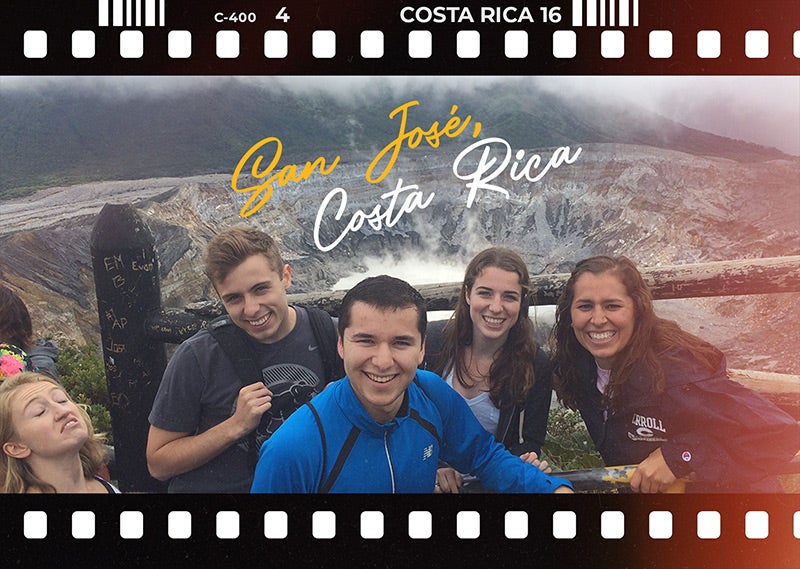
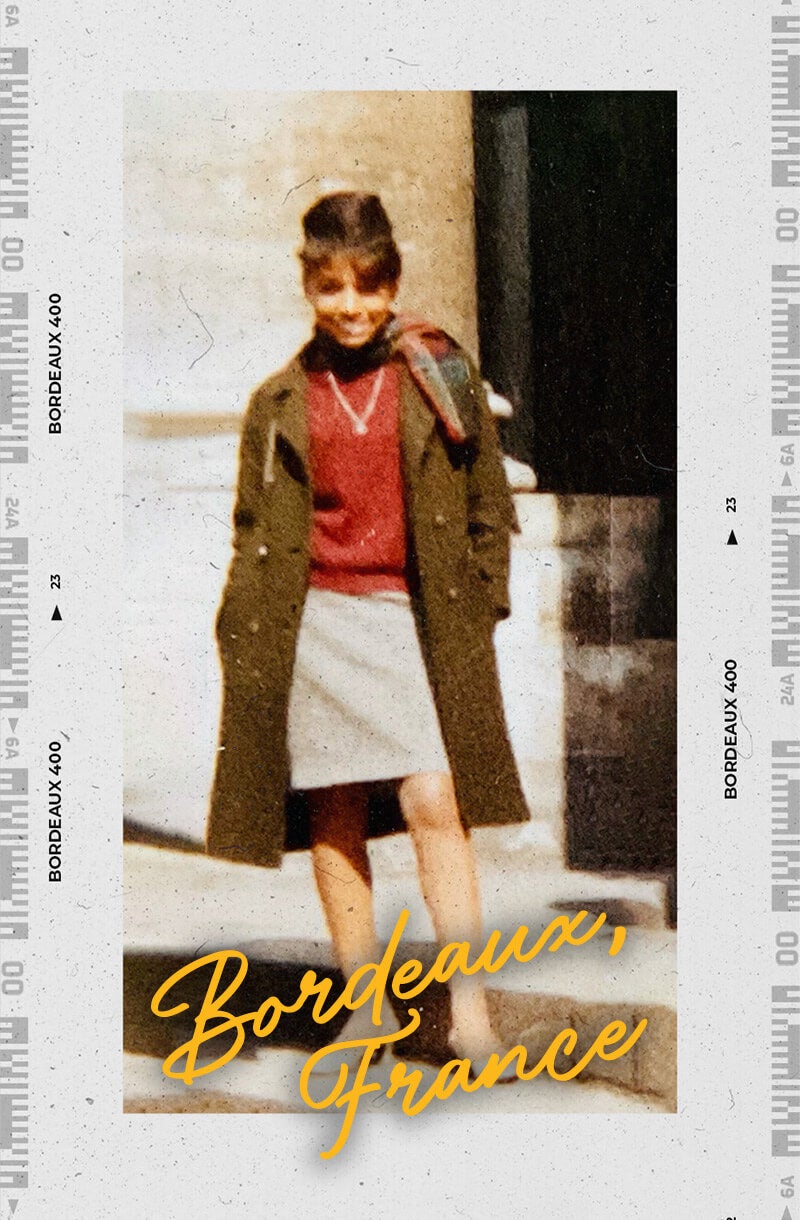
Dispatches from Spain
Fourth-year psychology major Karen Rojas is currently spending her summer completing a Hispanic studies course in Spain as part of a FLEAP offering led by UCR professor Covadonga Lamar Prieto. Rojas also spent the spring in Italy as part of a UCEAP offering. Read about her experience, top tips, and takeaways from abroad.
What are some of your favorite memories from Italy?
I have so many amazing stories but some of my favorite memories were walking around Trastevere (a neighborhood in Rome) with my friends, sharing about our week and discovering new food spots. It may seem small, but these were the moments in which I felt the most at home.
What are some of your best packing and preparation tips for traveling abroad? Any must-haves?
Must-haves are a portable charger and some type of bag with multiple zippers. My best packing tip would be to make a list of all the things you use in a week and only take the things you use the most often. It’s also important to keep in mind the length of your trip. You shouldn’t be packing the same for a three-week program as you would for a four-month one.
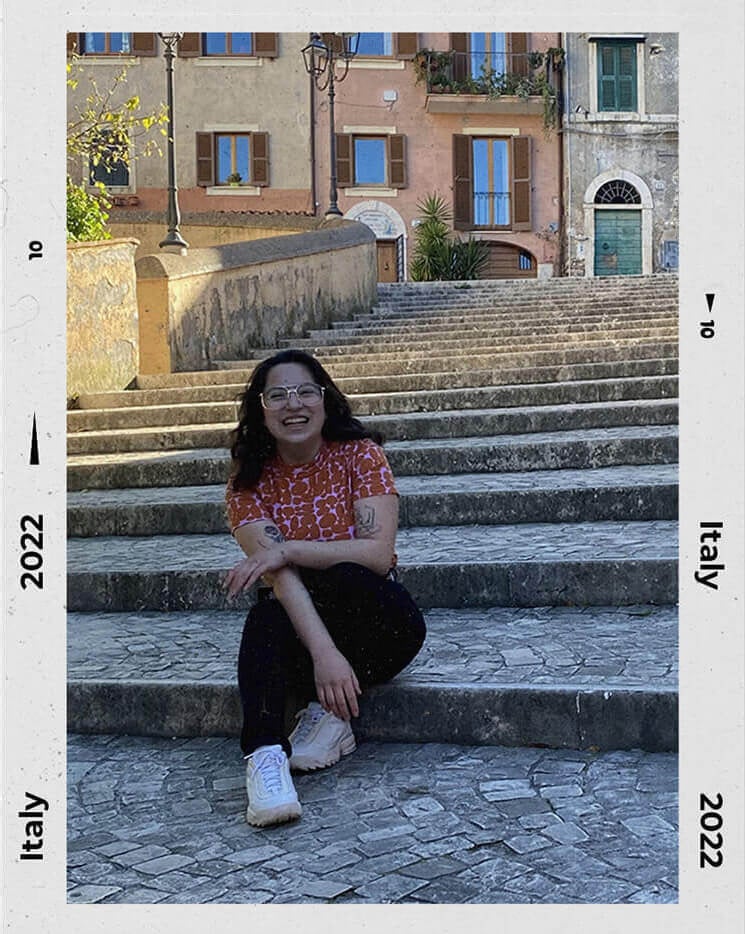
What advice do you have for students considering studying abroad? Is there anything you wish you had known ahead of time?
Start saving now! Even if you are unsure of participating, the moment you start considering it a possibility, start saving. If you decide it’s not for you, well, at least you have a small savings.
In what ways has studying abroad impacted your academic and personal development?
Before my time abroad, I was unsure of what I wanted to do post-grad, but I am confident in a career in education and encouraging students with my similar background to study abroad.
Why do you think access to education abroad opportunities are important?
My time abroad has allowed me to gain a new perspective not only of the world but my home and myself. It is an understanding that I don’t think I would have unless I spent time in a foreign country.
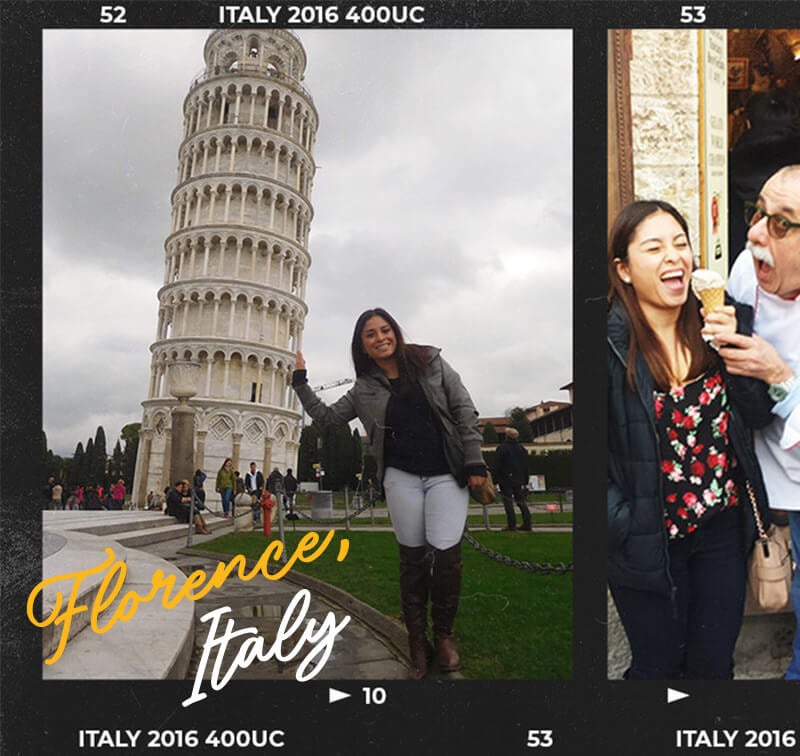
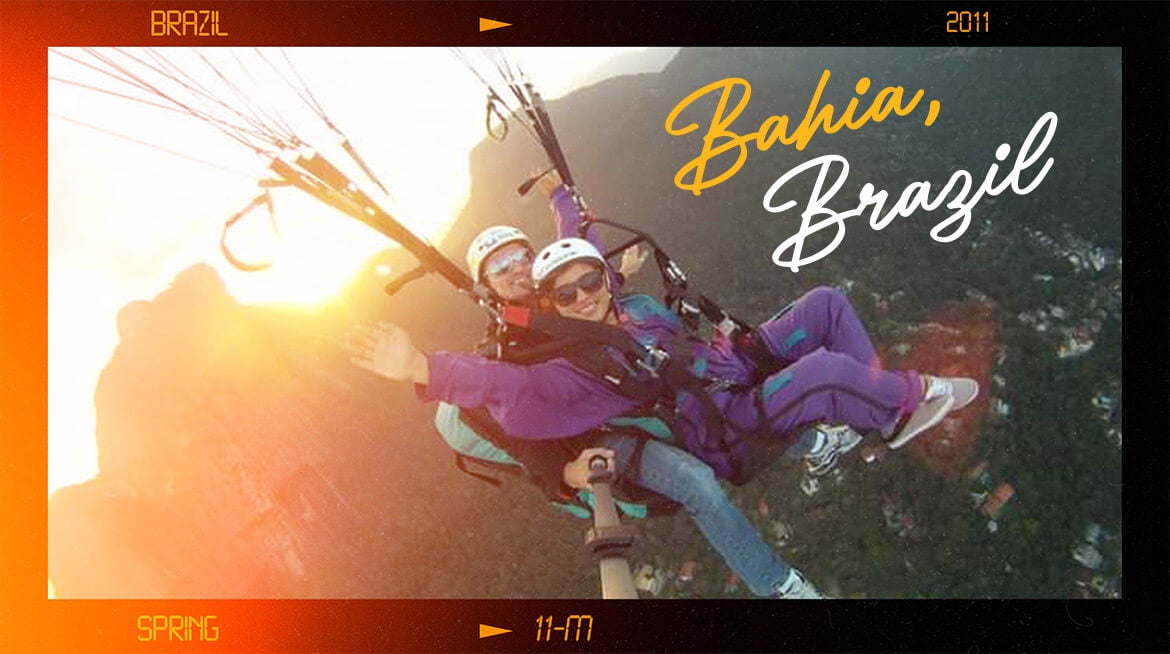
Kenia Reyes ’11, ethnic studies; administration and policy
UCEAP: Bahia, Brazil | spring 2011
Studying abroad in Brazil was one of the best decisions I made while in college. Not only did it create long-lasting friendships with fellow UCR students, but it also helped me to develop skills that I now use in various aspects of my life. Some of my favorite memories while in Brazil include running to the beach to watch the sunset, taking forró dance classes with locals, teaching English to high school students, savoring delicious feijoada every week made by my host mom, going to soccer games, paragliding in Rio de Janeiro, and attending the world-famous Salvador Carnaval. The impacts that studying abroad have had on my personal and professional life are everlasting. My advice to future study abroad students is to be open to opportunities of growth and learn as much as you can from others. Enjoy the moment!
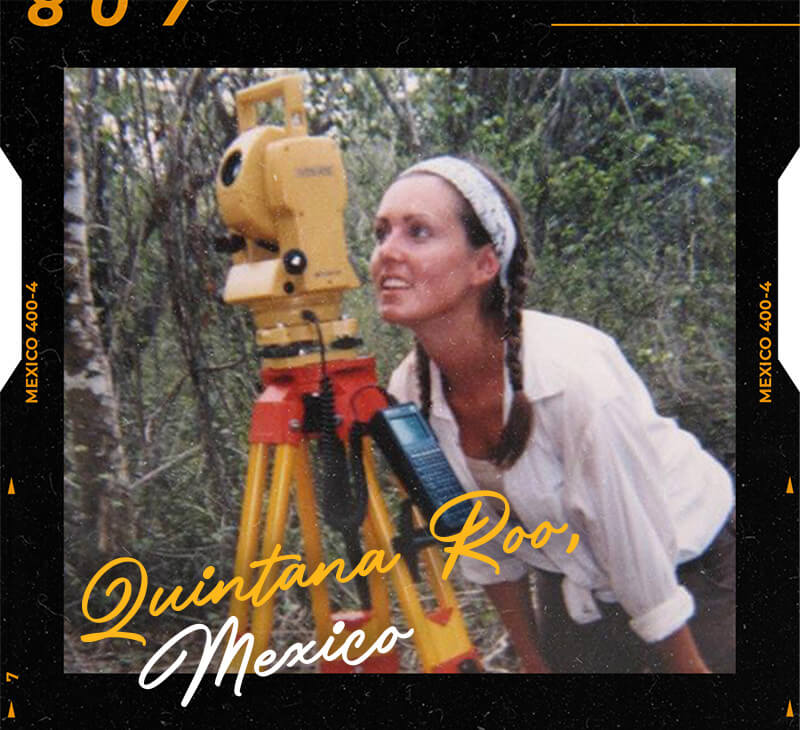
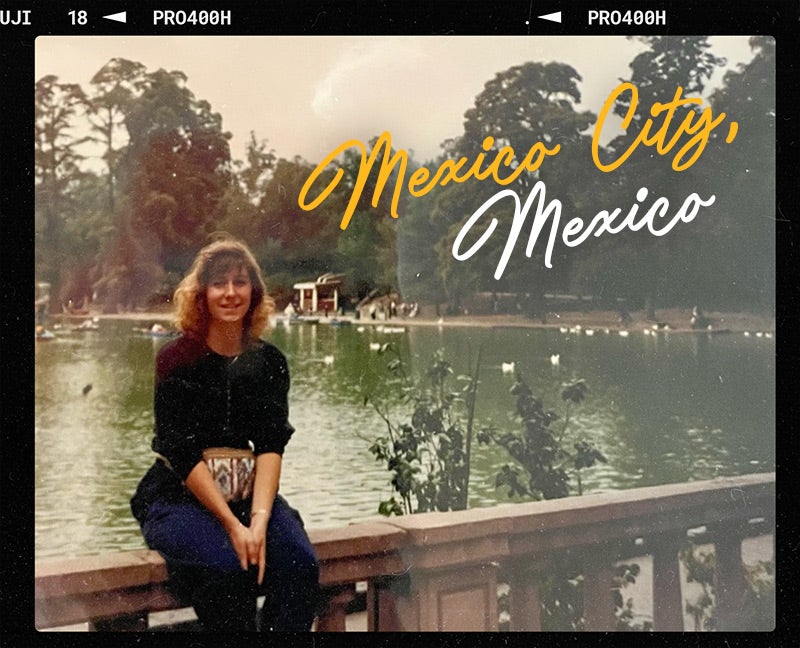
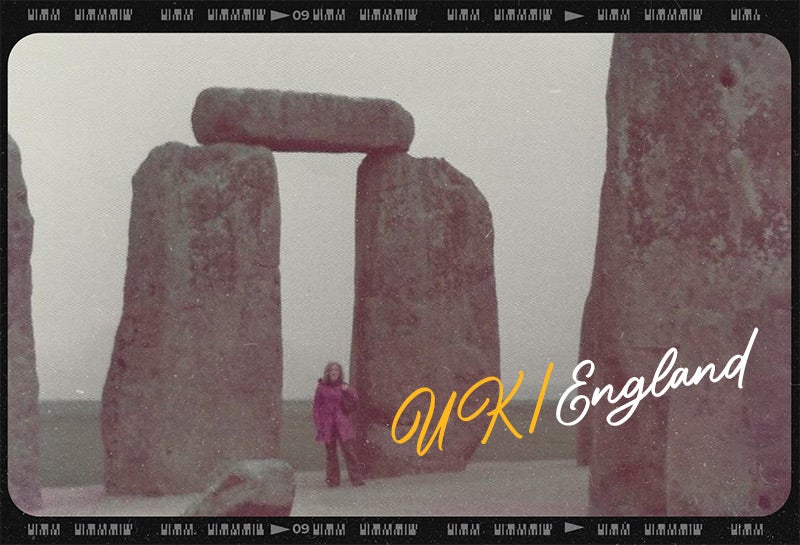
Looking Back
Over her nearly 40-year career at UCR, Diane Elton held several roles in the former International Services Center and International Education Center, now known as Education Abroad. Elton first served as administrative assistant and study abroad advisor, then became the international student advisor. Following the departure of her mentor and previous director of the center Ronald G. Heinrich, Elton was selected to head the program in 1977, serving as director until her retirement in 2011. Here, she reflects on her fondest memories of helping UCR students study abroad.
“Goodness — there are so many! Mostly, I would choose a feeling, not a specific memory. That feeling is the pure joy in listening to returned students talk about what they saw, who they met, how they actually understood the course taught in another language, what they ate, how they were homesick and then magically they weren’t. Returned study abroad participants join a special group. Forevermore, when they start a conversation with a stranger which includes discovery that both people studied abroad, they have an immediate bond of what study abroad meant in their lives.”
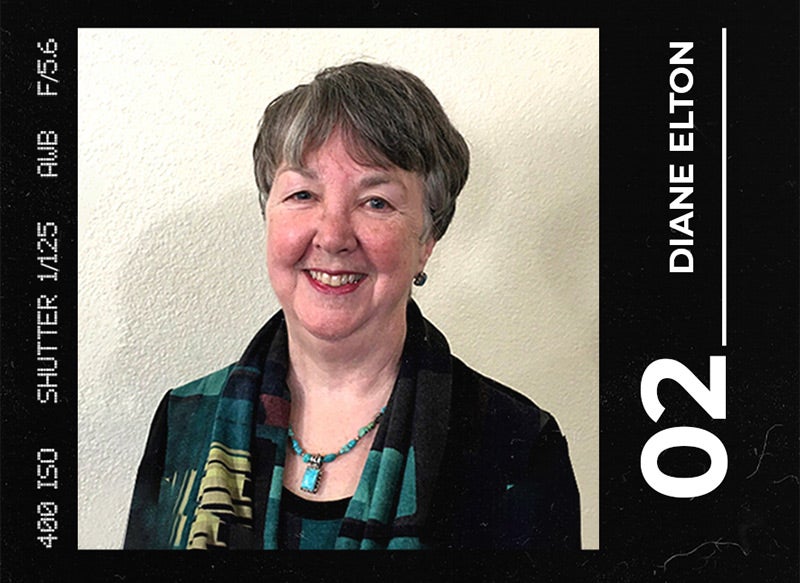
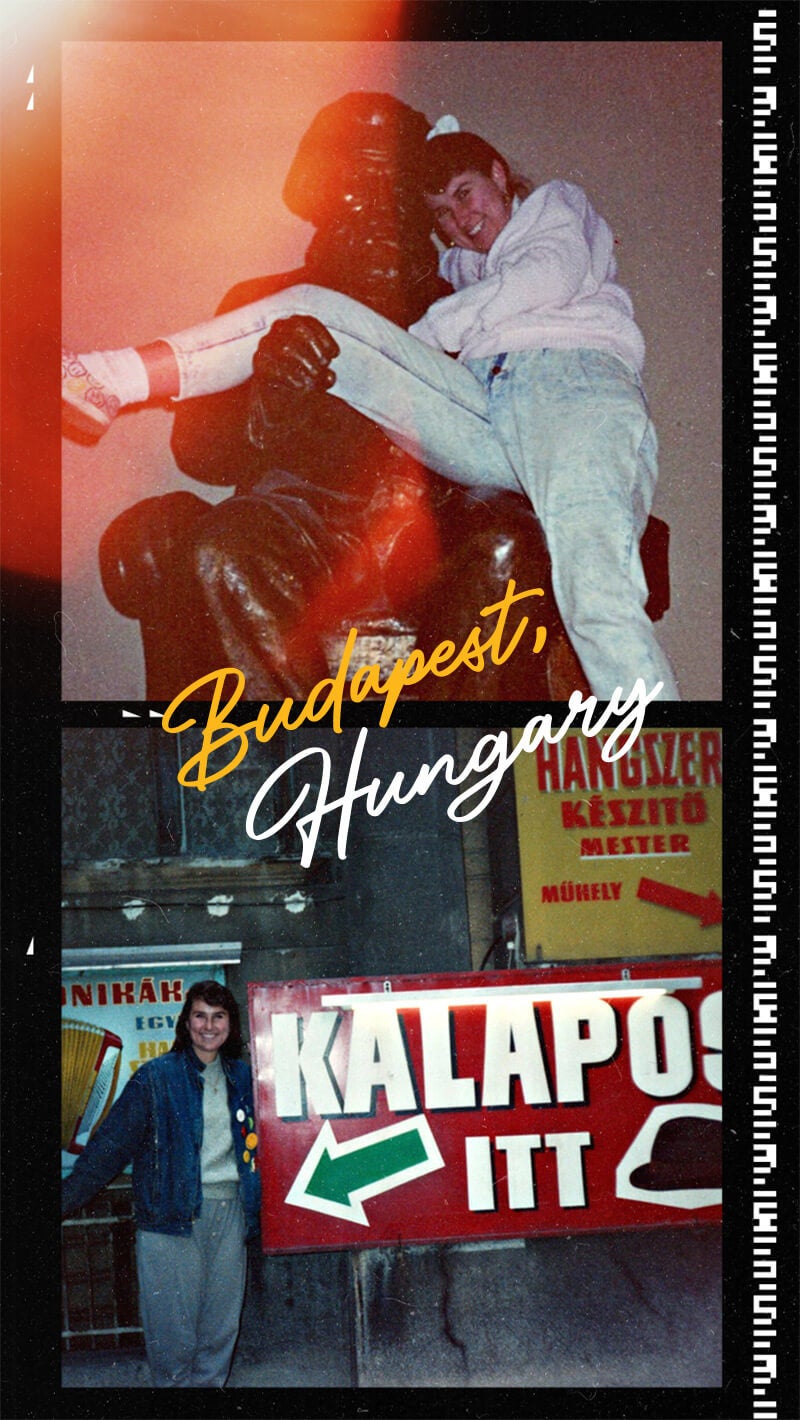
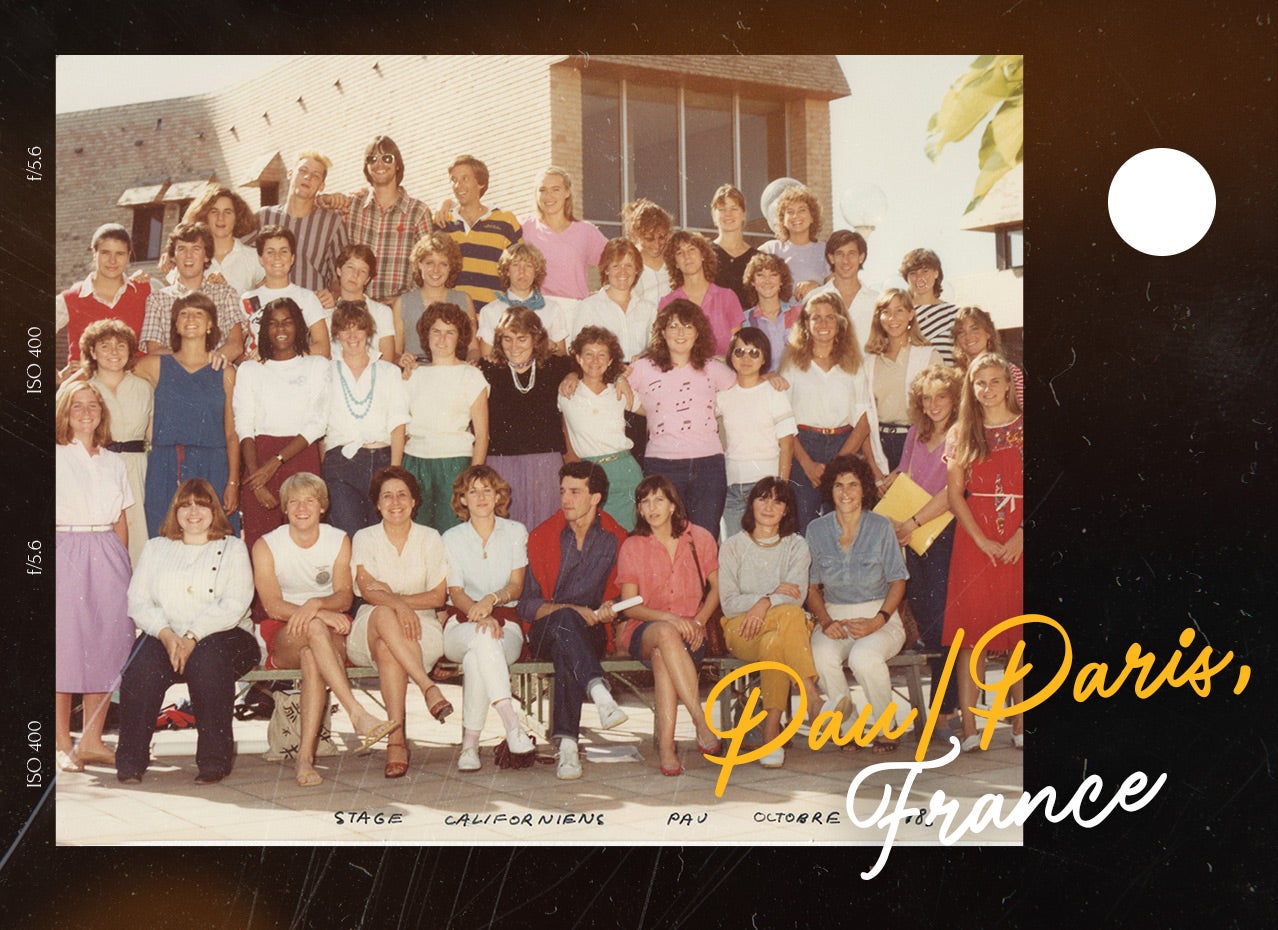
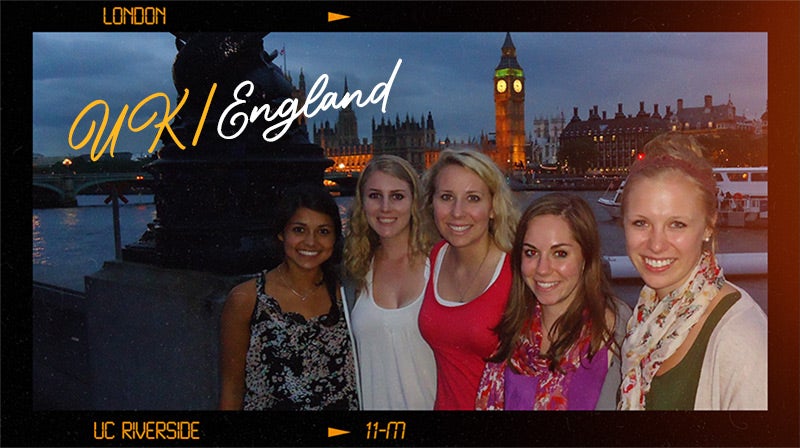
Mallory Phipps ’13, creative writing
UCEAP: UK/England | summer 2012
By far, studying abroad was one of the best experiences of my life. The friendships and memories that came out of those two months were some that I will cherish forever. What also added to the experience was being there during the 2012 London Olympics and being immersed in the Olympic crowd. I encourage every college student, if they have the opportunity, travel, see the world, and dip your toe into an adventure you’ll never forget!
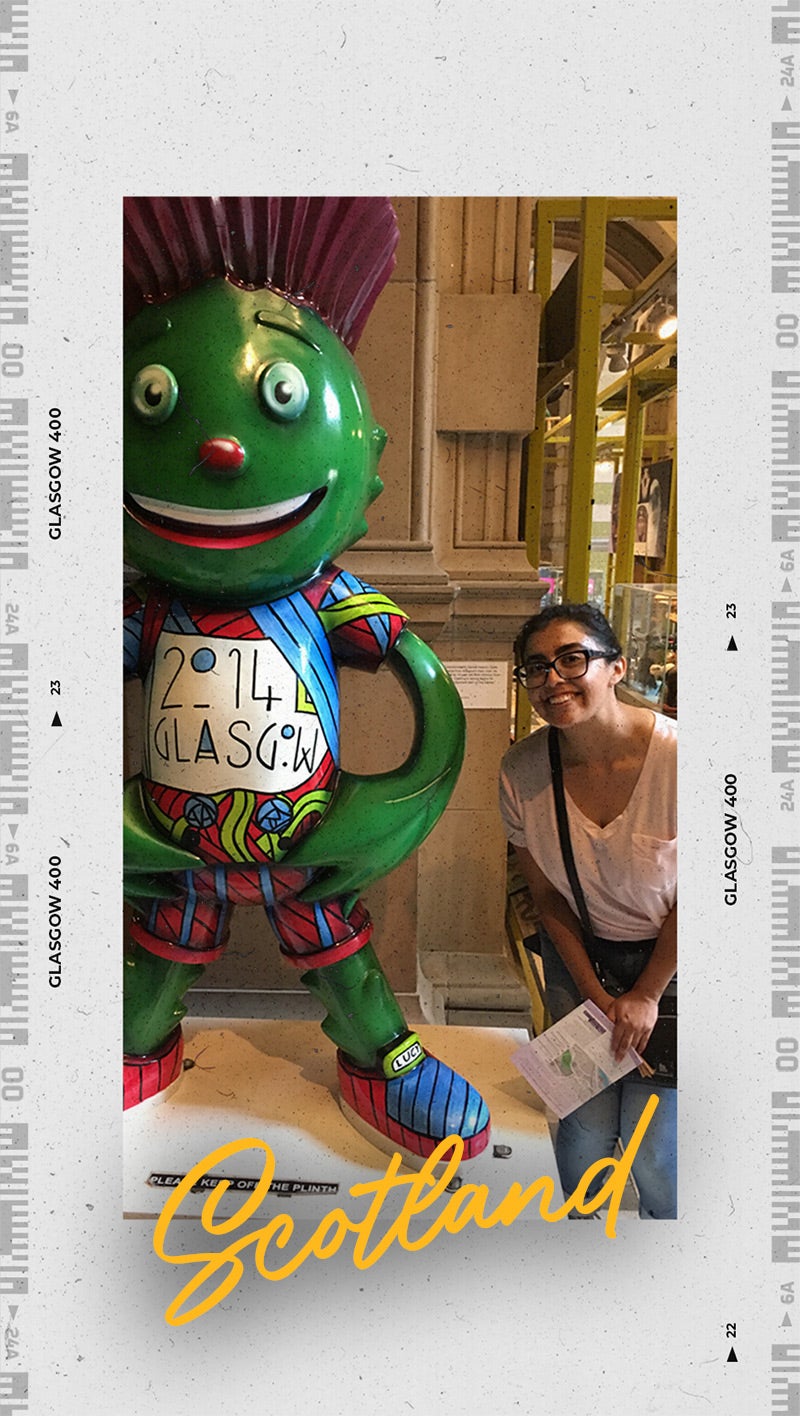
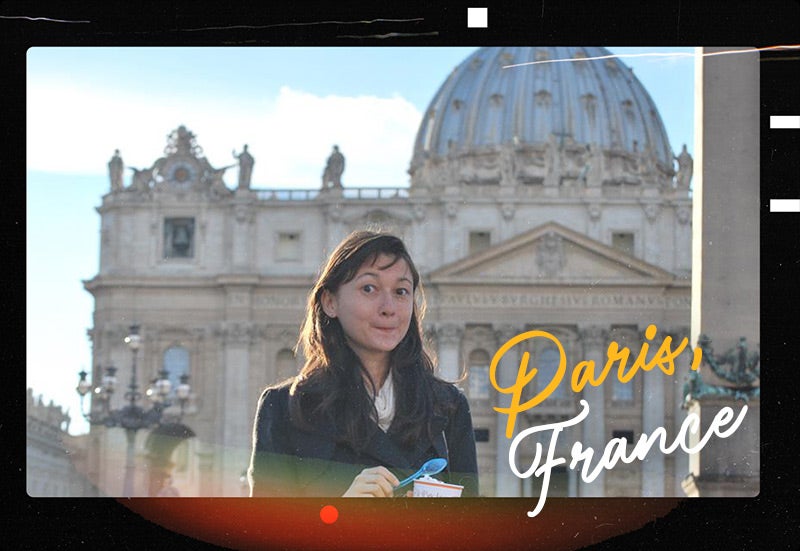
A Punk Rock Summer in Scotland
What says “Highlander” more than studying in Scotland? One of several varied and unique FLEAP offerings at UCR, students can spend a summer in Scotland studying the development of punk and post-punk music. Facilitated by media and cultural studies professor Richard T. Rodríguez, the hands-on course sees students visiting museums, official and unofficial archives, and historic venues, while meeting with scholars, journalists, and musicians.
“Not only is Scotland the ideal location for this program given its centrality for analyzing the emergence of British punk and post-punk cultures but it’s also frequently overlooked in favor of England, more specifically London,” Rodríguez said. “Students learn that the UK is more than England, and many of their stereotypes of Scotland and Scottish culture are challenged during their time in both Glasgow and Edinburgh.”
The immersive program allows students to learn beyond books or classrooms to better understand cultural processes. Music cultures in particular are infused with a sense of “liveness,” Rodríguez said, which requires being a part of a scene to fully grasp the significance of what is later analyzed on the page.
“Students made connections in Scotland which have made an indelible impact on their career choices and postgraduate educational endeavors,” Rodríguez said. “I can’t begin to recount the stories students have told me about how much this FLEAP program changed them personally, intellectually, and professionally.”
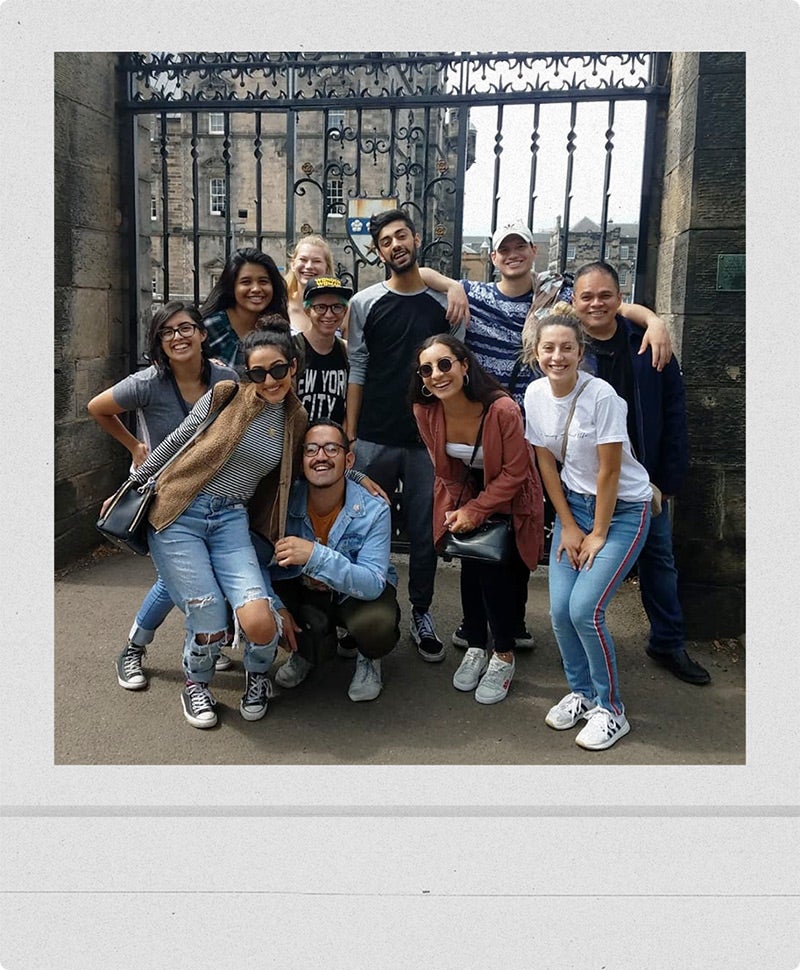
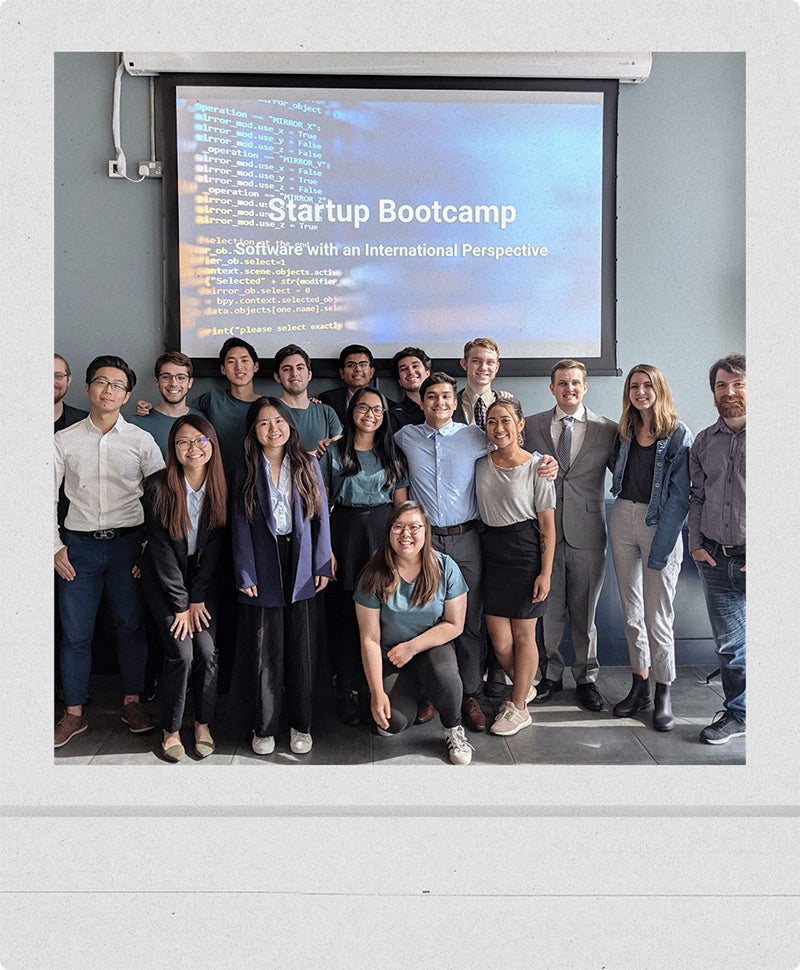
Startup Jumpstart
For a crash course in startups, computer science students can participate in a FLEAP offering facilitated by UCR instructors Brian Crites and Jeff McDaniel. Designed to run like a startup bootcamp, students form groups to build a web-based product for a web development course and develop a business plan for an entrepreneurship in computing course. The 2022 offering sees students studying in Paris.
“The locations are chosen based on their strength in technology and entrepreneurial activity, and it moves every year so that no two programs are exactly the same,” McDaniel said. “The students develop their product while exploring the culture of a foreign city and get exposure to a foreign entrepreneurial ecosystem so they can consider how their idea might fare on both a national and international stage.”
The program provides students the opportunity to try out what it’s like to be at a startup in a no-risk environment and leave with a unique and impactful resume item and a broader perspective about the variety of roles available.
“Engineering courses offered abroad are already pretty rare, and the combination of entrepreneurship and web development we’ve created isn’t something you see very often even in regular curriculum,” Crites said.
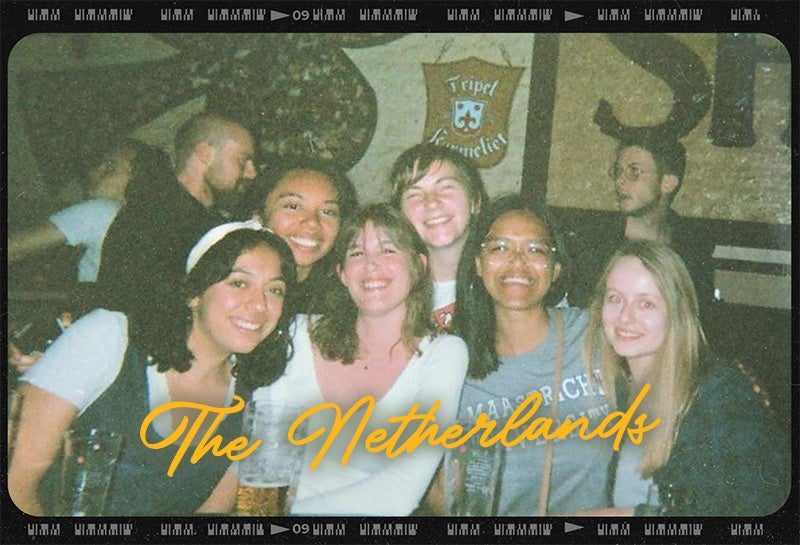
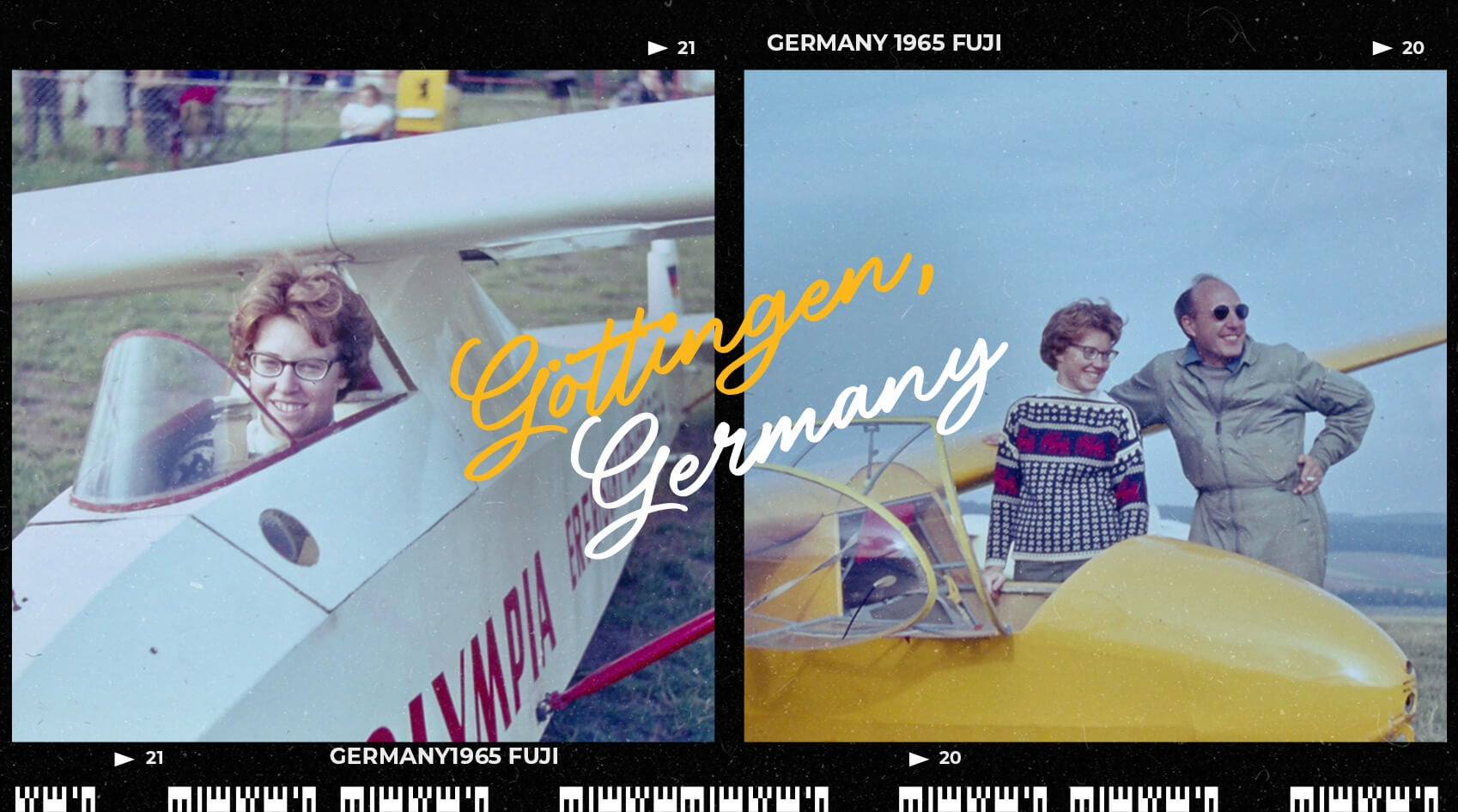
Shelley McEwan ’67, history
UCEAP: Göttingen, Germany | 1965-66
I had studied German and chose to go to Göttingen for my junior year. I am still close friends with women I met that year. The opportunity to live in another country and culture, to study at a German university, to travel and stay in hostels with students from across the world, to meet a wide variety of people through university activities — the glider club and a two-week student ski trip to Switzerland — and visiting my German roommate and her family all made my year a wonderful and broadening experience. I called home twice and had to walk late at night to the train station to place the call. It was a true basis for living independently and dealing with difficulties on my own.
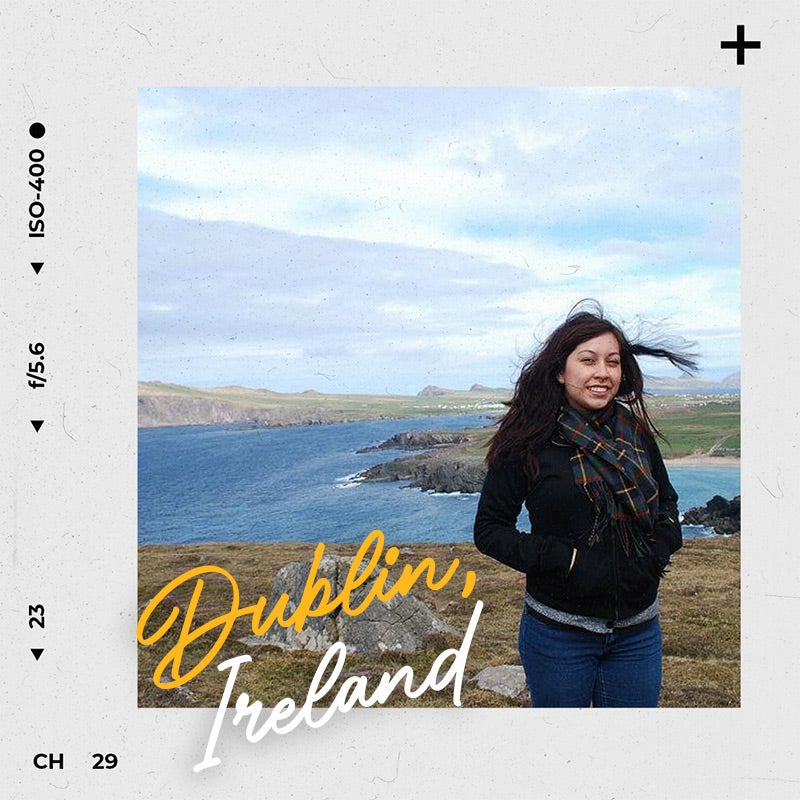
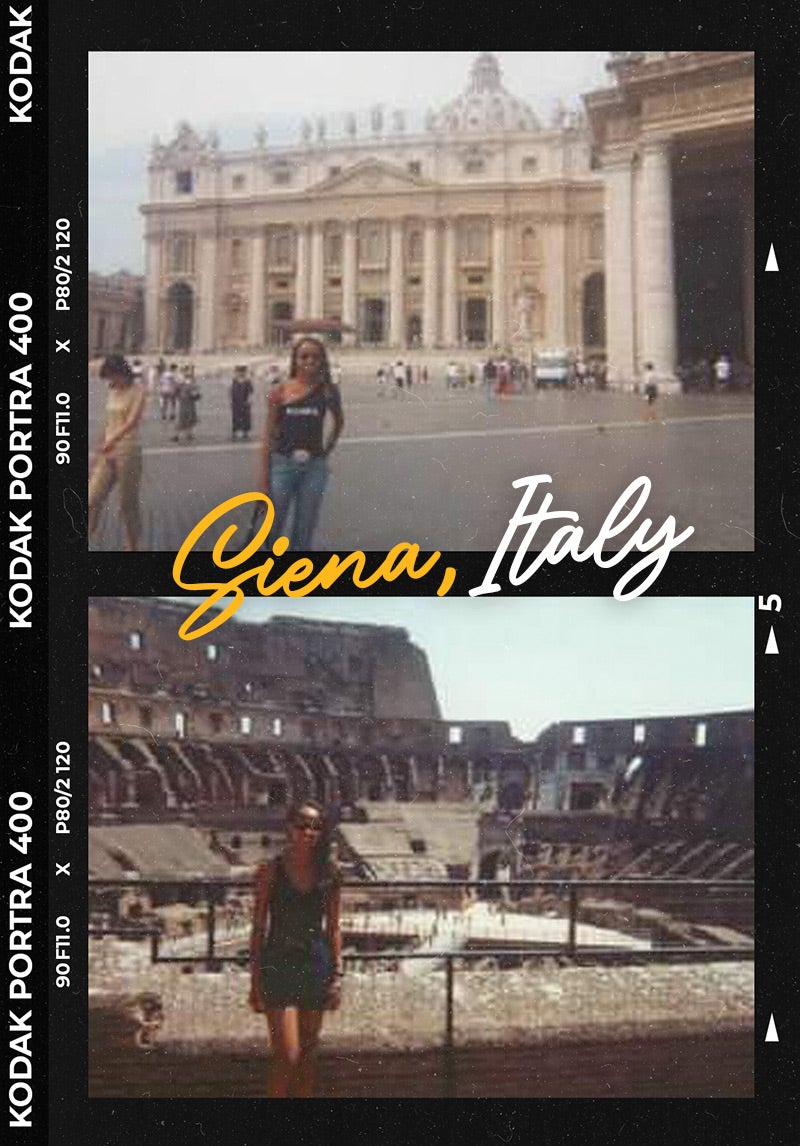
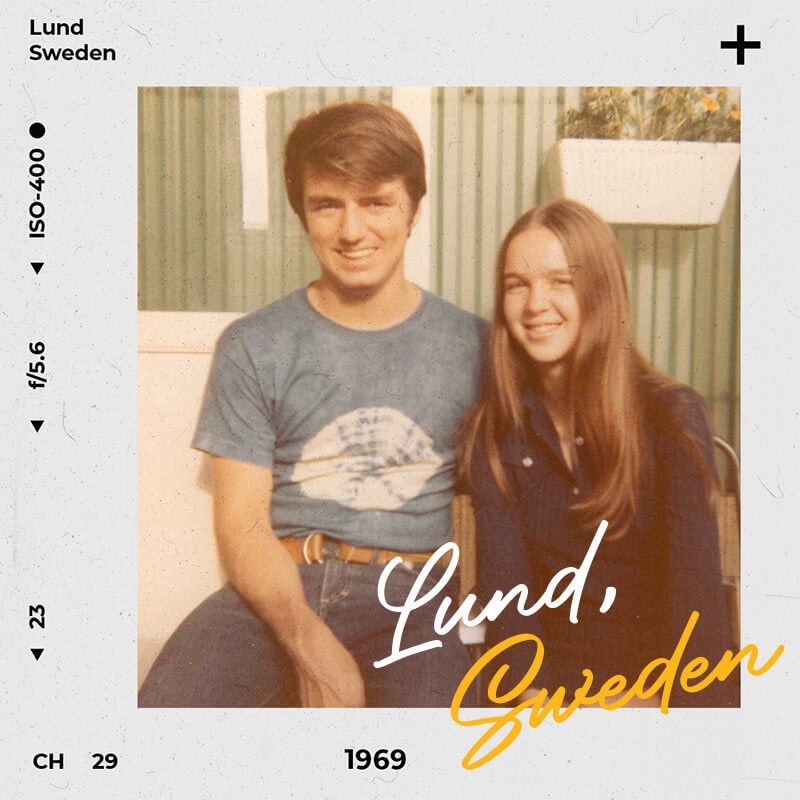

The World is at Their Fingertips
You can put study abroad opportunities within reach for UCR students!
Study abroad programs help students improve their language skills, experience a new culture, prepare for work in a global economy, and become more confident and independent. Your donation to the Education Abroad Programs Fund will help send students to study, intern, conduct research abroad — and make memories to last a lifetime!
Gifts of all sizes have great impact at UCR.
| Your gift | Your impact |
|
$250 |
Fulfills a student’s first requirement for international travel: obtaining a passport. |
|
$500 |
Covers one student’s program deposit, which is non-refundable and often due before financial aid packages are finalized. |
|
Any amount |
Provides funding for student transportation via airline, rail, metro, and bus, and assists students dealing with emergencies while abroad. |
Make your gift at donate.ucr.edu/summer2022 | Learn more about Education Abroad at international.ucr.edu/abroad
Return to UCR Magazine: Summer 2022
